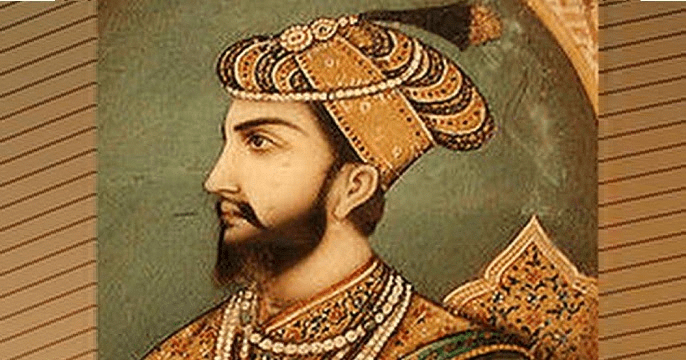Chapter 4 The Mughal Empire Solutions
April 2, 2025Chapter 5 Tribes, Nomads and Settled Communities Solutions
April 2, 2025NCERT Solutions: Delhi 12th To 15th Century
Let’s Recall
Q1. Which ruler first established his or her capital at Delhi?
Ans: Ananga Pala of the Tomara dynasty was the first ruler to establish his capital at Delhi in 1130.
Q2. What was the language of administration under the Delhi Sultans?
Ans: Persian was the language of administration used by the Delhi Sultans.
Q3. In whose reign did the Sultanate reach its farthest extent?
Ans: During the reign of Alauddin Khalji and Muhammad Tughluq, the Sultanate reached its farthest extent across the subcontinent. Key achievements include:
- Defeating rival armies and capturing several cities.
- Collecting taxes from the peasantry.
- Dispensing justice throughout their realm.
 Muhammad TughluqQ4. From which country did Ibn Battuta travel to India?
Muhammad TughluqQ4. From which country did Ibn Battuta travel to India?
Ans: : Ibn Battuta was a fourteenth-century traveller who came to India from Morocco, located in Africa.
Let’s Understand
Q5. According to the “Circle of Justice”, why was it important for military commanders to keep the interests of the peasantry in mind?
Ans: According to the Circle of Justice, military commanders needed to consider the interests of the peasantry for several reasons:
- A king relies on soldiers for protection and governance.
- Soldiers require salaries to sustain their livelihoods.
- Salaries are funded by the revenue collected from peasants.
- Peasants can only pay taxes when they are prosperous and content.
- Justice and good governance from the king promote the well-being of the peasantry.
Q6. What is meant by the “internal” and “external” frontiers of the Sultanate?
Ans: The internal frontiers of the Sultanate focused on:
- Securing and developing areas around military towns.
- Clearing forests in the Ganga-Yamuna region.
- Displacing hunter-gatherers and pastoralists to allocate land to peasants.
- Boosting local trade by constructing new forts and military towns.
The external frontiers involved:
- Military campaigns into southern India.
- Initiated under Alauddin Khalji and concluded during Muhammad Tughluq’s reign.
Q7. What were the steps taken to ensure that muqtis performed their duties? Why do you think they may have wanted to defy the orders of the Sultans?
Ans: Steps were taken to ensure that muqtis performed their duties:
- The muqtis were responsible for leading military campaigns and maintaining law and order in their iqtas.
- Their positions were made non-inheritable to prevent the establishment of powerful dynasties.
- They were assigned to their iqtas for limited periods, ensuring regular changes in leadership.
- The state appointed accountants to monitor the revenue collected by the muqtis.
- It was mandated that muqtis only collected taxes set by the state and maintained a specified number of soldiers.
Reasons for potential defiance against the Sultans:
- Muqtis maintained their own armies, which could lead to rebellion against the central authority.
- They collected revenues independently, giving them significant power and influence.
- Harsh conditions of service may have motivated them to resist the Sultans’ orders.
Let’s Discuss
Q8. Do you think the authors of tawarikh would provide information about the lives of ordinary men and women?
Ans: No, the authors of Tawarikh likely did not provide information about the lives of ordinary men and women. Their writings focused on:
- Praising the Sultans to gain rewards.
- Being part of the administration, which meant they lived in towns.
- Having little awareness of the daily lives of common people.
Thus, their accounts primarily reflected the perspectives of the elite rather than those of the general populace.
Q9. Raziyya Sultan was unique in the history of the Delhi Sultanate. Do you think women leaders are accepted more readily today?
Ans: Raziyya Sultan was a remarkable figure in the history of the Delhi Sultanate, as she was the first woman to rule the Sultanate. She was more capable and qualified than her brothers. Today, women leaders are generally accepted more readily due to:
- Democracy: Democratic values promote equality.
- Open-mindedness: Society has become more accepting of gender equality.
- Successful examples: Many women have demonstrated their ability to lead effectively.
- Public support: There is widespread backing for women in leadership roles.
Q10. Why were the Delhi Sultans interested in cutting down forests? Does deforestation occur for the same reasons today?
Ans: The Delhi Sultans were interested in cutting down forests to give land to the peasants and carry out agricultural practices. Also, new fortresses and towns were established to protect trade routes and to promote regional trade. They also cleared forests in order to safeguard their frontiers and quick movement of their army. In today’s world, deforestation occurs due to the construction of roads, railways, houses and industries. So, we can say that deforestation occurs for the same reasons today, but only the perspective of views has been changed.
Q11. Find out whether there are any buildings built by the Delhi Sultans in your area. Are there any other buildings in your area that were built between the twelfth and fifteenth centuries? Describe some of these buildings, and draw sketches of them.
Ans: Yes, there are several. Some of them are buildings built between the 12th and 15th centuries.
- Jamali-Kamali Mosque.
- Sirifort.
- Begumpuri Mosque.
- Moth Ki Masjid.
- Raziyya’s Tomb.
- Qutb Minar.
- Tugalakabad Fort
- Firuz Shah Kotla
- Purana Quila
Other Buildings
- Lai Quila
- Jama Masjid.

